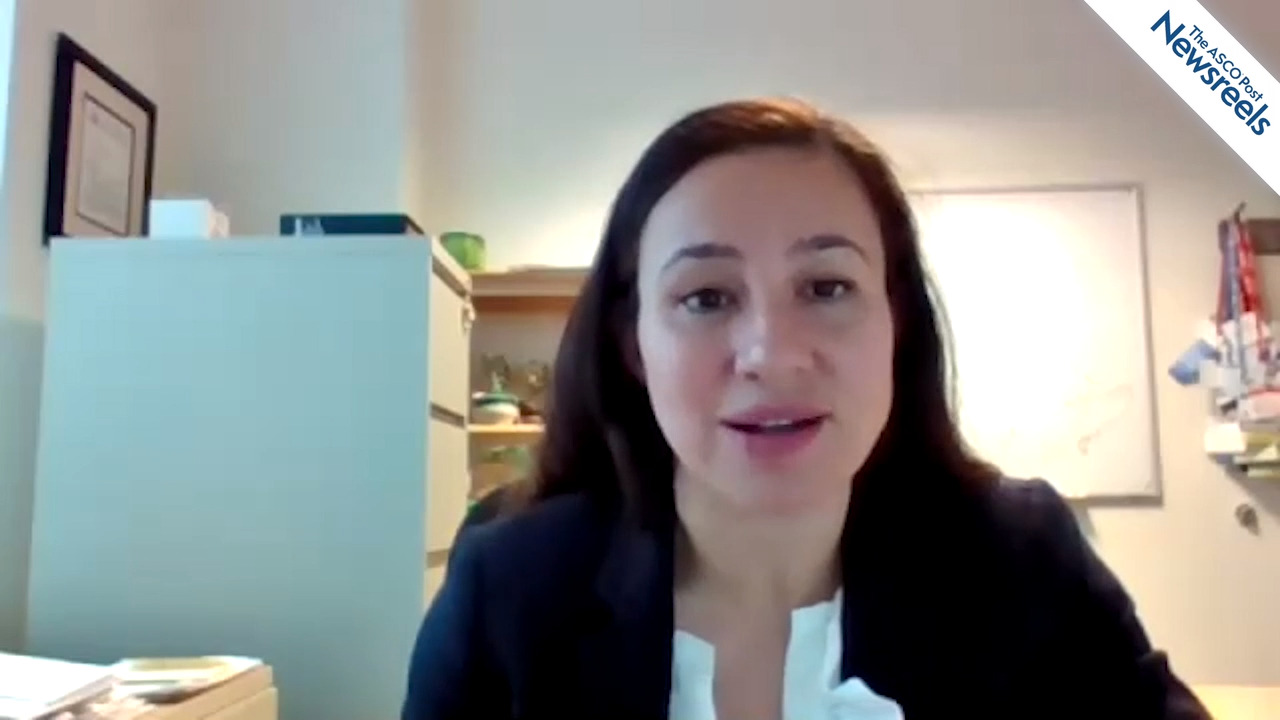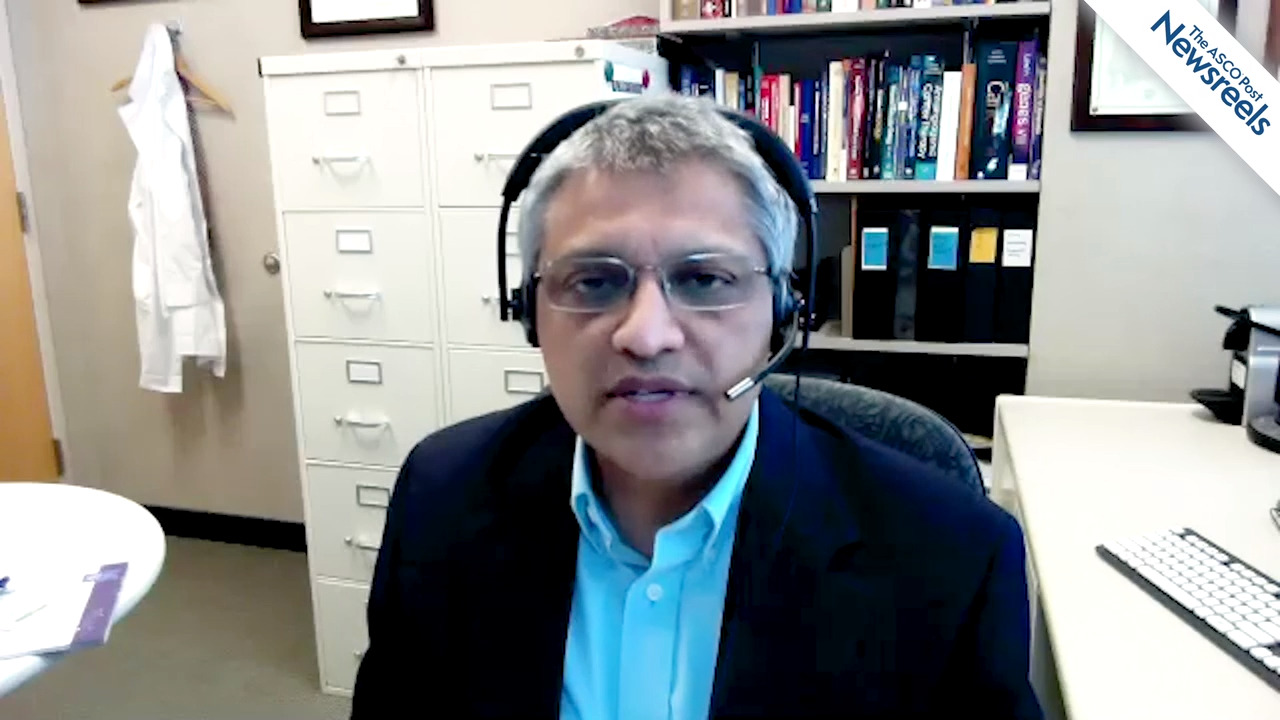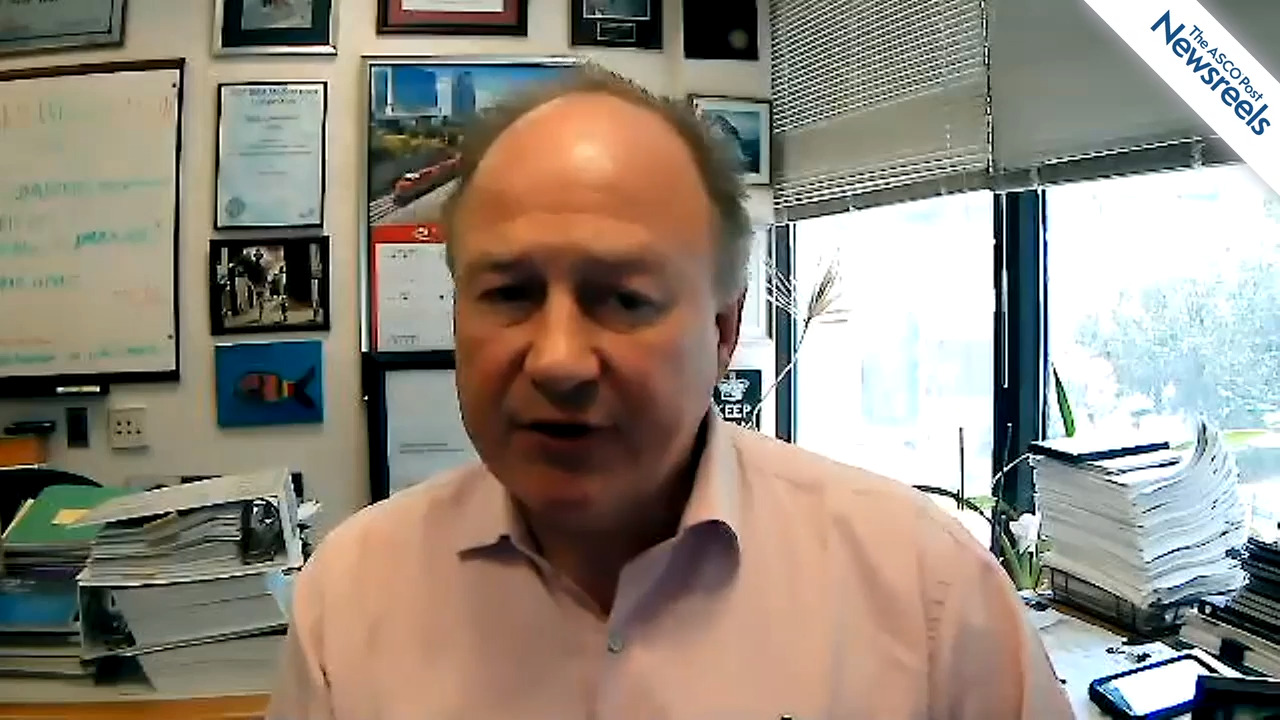Ursula A. Matulonis, MD, on Ovarian Cancer: Roundup of Studies on Olaparib, Cediranib, Mirvetuximab Soravtansine, Bevacizumab, and Pembrolizumab
ASCO20 Virtual Scientific Program
Ursula A. Matulonis, MD, of Dana-Farber Cancer Institute, discusses three important studies focusing on newer therapies for patients with recurrent platinum-sensitive, platinum-agnostic, and advanced recurrent ovarian cancers (Abstracts 6003, 6004, and 6005).
The ASCO Post Staff
Merry-Jennifer Markham, MD, ASCO’s Cancer Communications Chair, gives her views on key papers presented at the ASCO20 Virtual Scientific Program, addressing gynecologic malignancies and COVID-19.
The ASCO Post Staff
Rana R. McKay, MD, of the University of California, San Diego, discusses the results of a phase II trial of intense neoadjuvant hormone therapy followed by radical prostatectomy in men with high-risk prostate cancer. The data show that 21% of patients had a favorable pathologic response (Abstract 5503).
The ASCO Post Staff
Shaji Kumar, MD, of the Mayo Clinic, discusses findings from the ENDURANCE trial, which showed bortezomib, lenalidomide, and dexamethasone should remain the standard of care in patients with newly diagnosed standard- or intermediate-risk multiple myeloma, for whom early autologous stem cell transplant is not intended (Abstract LBA3).
The ASCO Post Staff
Egbert F. Smit, MD, PhD, of the Netherlands Cancer Institute, discusses interim results from the DESTINY-Lung01 trial of fam-trastuzumab deruxtecan in patients with HER2-mutated metastatic non–small cell lung cancer. The data show clinical activity with high overall response rates and durable responses (Abstract 9504).
The ASCO Post Staff
Paul G. Richardson, MD, of Dana-Farber Cancer Institute, discusses early results on a cereblon E3 ligase modulator agent combined with dexamethasone in patients with relapsed or refractory multiple myeloma, with an overall response rate of 48%. The study is ongoing to further optimize dose and schedule (Abstract 8500).





